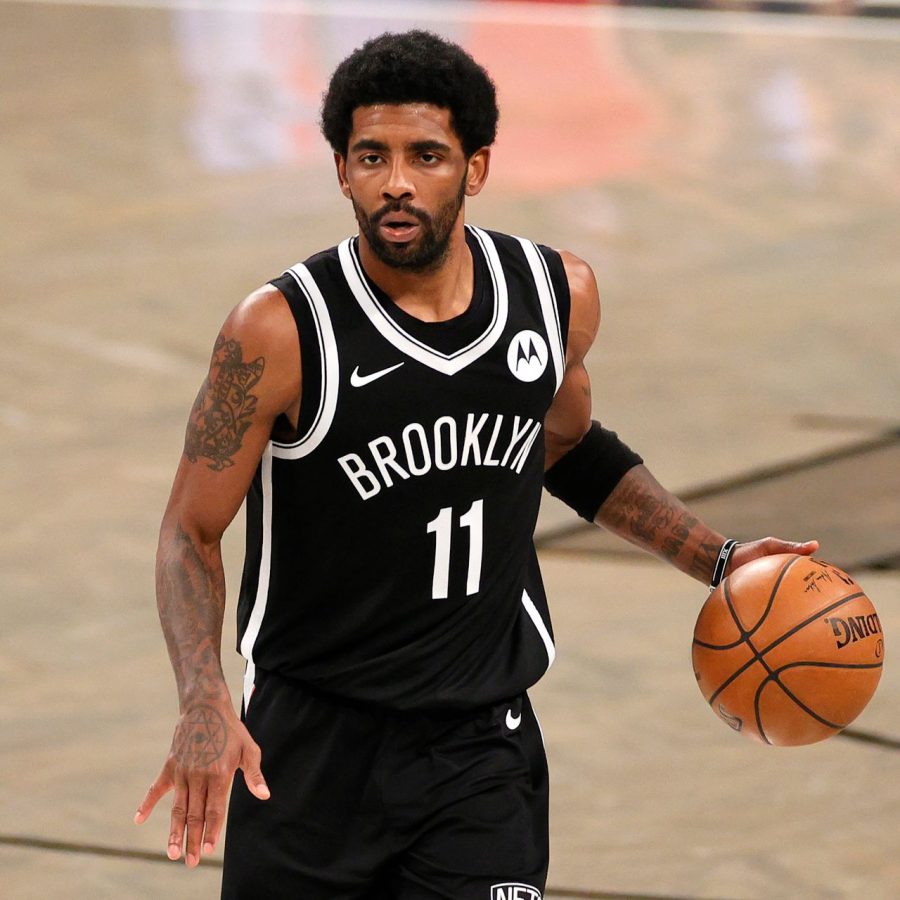Kyrie Irving and the Black-Jewish Alliance
This year as we light the menorah, my family of Jewish basketball fans will be talking about Kyrie Irving.
On October 27, the Brooklyn Nets star tweeted a link to an antisemitic film which, among other falsities, claims that the Holocaust never happened, that Black people are the real Jewish people, and that Jews orchestrated the Atlantic slave trade. The NBA responded by suspending Kyrie “indefinitely,” demanding that he apologize and condemn the film, donate 500,000 dollars to organizations that combat hate, complete a “sensitivity training” and “antisemitic/anti-hate” training, meet with the Anti-Defamation League (ADL) and Jewish leaders, and finally, meet with the Nets owner to “demonstrate the lessons [he] learned.” Nike severed its relationship with Kyrie and canceled his next shoe release.
Kyrie’s post arrived during an unsettling October for American Jews. Antisemitic hate crimes, which reached an all-time high in 2021, are on the rise. Rapper Ye (formerly Kanye West) has spouted hateful, anti-Jewish messages, and the FBI arrested a man in New Jersey after he threatened to attack synagogues across the state.
Fans and celebrities expressed a variety of opinions on Kyrie’s predicament: LeBron James described his punishment as “excessive,” writing, “Kyrie apologized and he should be able to play.” Still, many fans — especially Jewish ones — feel that Kyrie has yet to demonstrate true remorse or learning.
One fan has a different solution altogether:
My grandpa was a teacher for 36 years at Seattle’s Franklin High School where he taught Law and Society and African American History. He described the NBA’s response as “poorly-targeted and largely punitive,” breeding resentment rather than understanding. “What the Jewish community, the NBA and the Nets should be encouraging,” he suggested, “is that [Kyrie] contribute to healing the breach between Black people and Jewish people after learning about the contribution that [their] alliance made to the civil rights movement.”
Racial issues have hit close to home for many Jewish people who know what it’s like to be discriminated against. The Jewish community consistently showed up during the civil rights movement of the 1950s and 60s: most of the white people who participated in Freedom Rides — the 1960s bus trips into Alabama that protested segregation on public transportation — were Jewish. In 1964, Mickey Schwerner and Andrew Goodman, Jewish men, were murdered by the KKK alongside James Cheney, a Black man, as they registered Black people to vote. Today, many Jewish Americans support the Black Lives Matter movement and vote for candidates who are focused on addressing racial inequality.
By making amends with the Jewish community, Kyrie will encourage further progress on racial issues by way of the Black-Jewish alliance. When asked for specific actions that he might take, my grandpa proposed that Kyrie get involved in local schools by funding curriculum on the role of Jewish people in the civil rights movement, noting that any action taken by Kyrie must be voluntary and not stipulated by the NBA or another organization.
Either way, my grandpa says, Irving should be back on the court, but he hopes that Kyrie will learn — and use his platform to educate others — about the history of Black people and Jewish people in dismantling segregation: “Let us not let ignorance tear that alliance apart and, in the process, dishonor the memory of all who risked life and limb, and died in the cause of Black freedom.”
Samara enjoys writing, playing basketball, and spending time with her chihuahua-pug, Ivy!

